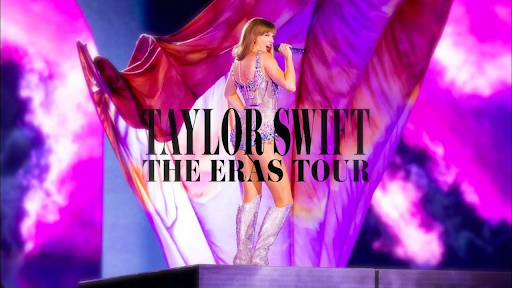
After over 40 years in development hell and $120 million of his own money fronted for the film’s production, Francis Ford Coppola’s “Megalopolis” was finally released into theaters on Sept. 27.
The plot of this self-described “fable” follows a vast ensemble of characters as they navigate the power struggle that will define the futuristic city of New Rome. Architect Cesar Catalina (Adam Driver) wishes to mold the city into his own perfected utopia but is opposed by Mayor Frank Cicero (Giancarlo Esposito) who wishes to maintain the status quo. A forbidden, Shakespearean-esque relationship between Cicero’s daughter Julia (Nathalie Emmanuel) and Cesar begins to blossom, leading to even more aggressive animosity and causing dangerous repercussions throughout the city.
Coppola’s vision for this story began in the early 80s; right after the release of “Apocalypse Now” and “The Godfather” duology, three of the greatest films of all time. Since then, Coppola had been unsuccessfully pitching “Megalopolis” to anyone who would listen and the identity of the film became almost an urban legend.
But the now 85-year-old Coppola decided to take matters into his own hands and fund the film himself, selling his wine business and mortgaging his farm to pay for the massive $120 million budget and cover marketing costs as well.
The result is a shameless, self-destructive dumpster fire with nothing of real substance to say about its many themes — justifying why no one wanted to make this film for decades. The film lacks any of the nuance or finesse that made Coppola’s earlier masterpieces so impressive, it is even devoid of any of the style seen in his other films like 1992’s “Bram Stoker’s Dracula.”
The script is as transparent as glass and as flimsy as a piece of paper in the wind. There’s no depth to any of the characters and every conversation is an odd amalgamation of ancient Roman jargon, Shakespearean language or modern-day lingo.
The star-studded and talented cast tried their best to make this work but failed to add any reason to care about any of these characters. The behind-the-scenes acting process was “experimental” and “theatrical” according to Driver, allowing for many instances of improvisation and a collaborative effort between writer and actor to develop a character. With this much improv and input from actors, every performance is vastly different from the next and feels very disjointed.
Driver delivers a truly baffling lead performance, having some of the oddest acting choices and line deliveries of his career. There is also some solid chemistry that Emmanuel and Driver have, their scenes together have potential but the relationship has no room to develop and in turn has an unsatisfying conclusion.
On the other hand, Aubrey Plaza’s “Wow Platinum” is a breath of fresh air and the best part of the film. She is clearly having the most fun out of anyone on set and she does an impeccable job of harnessing the chaotic energy of such a dysfunctional film, delivering an infectiously silly performance.
Coppola wished to cast “canceled” actors in hopes that this film wouldn’t be a “woke Hollywood production,” adding names like Jon Voight, Dustin Hoffman and Shia LaBeouf to round out the cast. Voight and Hoffman’s roles are limited but they both have some of the most shocking and unintentionally funny moments. LaBeouf has much more screen time than his “canceled” co-stars, leading to one of the most annoying and bothersome performances ever seen in a big-budget film.
LaBeouf’s Clodio lends way to some very on-the-nose commentary about celebrity politicians which is indicative of a larger problem. There are so many themes and social commentary being thrown around, none of it has any time to say anything substantial.
This film wraps discussions of love, time, media manipulation, political corruption, messianic figures, utopias vs. dystopias and much more altogether. With so much to talk about, there is no focus on any of these themes or messages, making it very unclear what this film was attempting to say about anything.
The script also doesn’t deliver any satisfying conclusions due to the amount of characters and subplots that are juggled around. Another 45 minutes could’ve been added to help solve these inconsistencies or 30 minutes could’ve been cut out to eradicate pointless plot lines that end in confusion.
The technical aspects are also very sloppy: the visual effects are an eyesore, the editing is pure insanity and whiplash-inducing, but Osvaldo Golijov’s score is a tense and welcome addition to the film.
It would be a compliment to call “Megalopolis” a mess. One of cinema’s most iconic and important filmmaker’s swan song will forever be remembered as a cautionary tale for the hubris of one’s own creativity.









